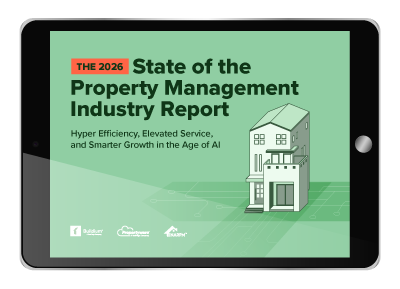As a property manager, you’re not just keeping properties in order; you’re building relationships with clients for the long term. However, there’s a special type of owner who might need a bit more attention: the absentee owner. Let’s dive into this concept and see how it shapes your role.
What Is an Absentee Owner?
Simply put, an absentee owner is someone who owns a property but doesn’t live in or directly manage it. They might be out of state, overseas, or just prefer to have someone else handle their real estate investment. These owners generally hire property managers to take care of maintenance, tenant relations, and rent collection.
Types of Absentee Owners
- Out-of-State Owners: These owners live in a different state than their property. This is common for investment properties.
- International Owners: Some absentee owners live overseas and often purchase U.S. properties for investment or vacation homes.
- Investors: Some owners live nearby but choose not to manage their property themselves, preferring professionals handle daily operations.
Why Do Property Owners Choose to Be Absentee Owners?
There are several reasons why someone might opt for absentee ownership. Understanding these motivations can help you better serve your clients and anticipate their needs.
Relocation
One common reason is relocation for work, family, or lifestyle. They might keep the property as an investment or plan to return someday.
Investment Purposes
Many buy properties as long-term investments, generating rental income or benefiting from potential property value appreciation. These owners often don’t want to handle day-to-day management.
Estate Planning
Some inherit properties or buy them as part of their estate planning. They may not be ready to sell or live there but want it well-managed for their family or heirs.
Vacation or Second Homes
Some live in different areas or countries part of the year, leaving their properties vacant for extended periods. They hire managers to oversee the property in their absence.
The Role of Property Managers with Absentee Owners
As a property manager, your role with absentee owners can be even more involved and important than it would be with other types of owners. You’ll keep their property in top shape and their tenants happy while maintaining regular communication with the owner, who may be far away.
Key Responsibilities
- Property Maintenance: Regular inspections and upkeep keep the property in good condition and maintain its value.
- Tenant Relations: Handle tenant issues such as resolving complaints, collecting rent, and managing lease renewals.
- Rent Collection: Collect rent on time and address late payments or eviction procedures promptly.
- Legal Compliance: Ensure the property adheres to all local laws, including zoning, building codes, and tenant rights, especially if the owner is unfamiliar with local regulations.
The Importance of Communication
Clear and regular communication with absentee owners is key. Since they can’t be on-site, they rely on you for updates on the property’s condition, tenant issues, and any necessary repairs.
- Frequent Updates: Absentee owners appreciate knowing the status of their property, especially if they can’t visit often. Sending regular reports on maintenance, rent collection, and significant events builds trust.
- Transparency: Be honest and open about any issues. Absentee owners need to feel confident that you’re managing their property responsibly and effectively.
Benefits of Managing Properties for Absentee Owners
Working with absentee owners offers several benefits for property managers. Understanding these advantages helps you position yourself as a valuable asset.
Long-Term Business Relationships
Many absentee owners are long-term investors with multiple properties. Doing a good job can lead to a strong, long-term relationship, resulting in more business over time.
Consistent Income
Absentee owners often need ongoing management services, providing a steady income stream. You may also earn fees from maintenance, tenant screenings, and leasing agreements.
Referrals
Satisfied absentee owners are likely to recommend you to other property owners. Since absentee ownership is common among investors, happy clients can refer you to their peers, growing your network and business.
Challenges of Managing Properties for Absentee Owners
While there are many benefits, there are also challenges property managers must navigate. With the right strategies, these challenges can be managed effectively.
Communication Barriers
Absentee owners may not always be available to address issues. Whether they’re out of state or overseas, coordinating repairs, approvals, or lease negotiations can be tricky. Establish clear communication lines, such as email, phone, or messaging apps, and respond promptly.
Trust and Accountability
Absentee owners may have limited knowledge about their properties. Building trust is crucial, and property managers need to act in the owner’s best interest and keep them informed about significant decisions.
Unrealistic Expectations
Some absentee owners may have unrealistic expectations about their involvement or the time it takes to manage a property. Set realistic expectations from the start and maintain transparency about what can and can’t be done within certain timeframes.
Infrequent Visits
Absentee owners often don’t visit the property regularly, leading to delays in catching potential problems. Property managers must conduct regular inspections and stay on top of routine maintenance to avoid unnoticed major issues.
Frequently Asked Questions
What is an absentee owner?
An absentee owner is someone who owns a property but doesn’t live in or directly manage it. They typically hire property managers to handle maintenance, tenant relations, and rent collection.
Why do people become absentee owners?
People may become absentee owners for various reasons, including relocation, investment purposes, estate planning, or owning vacation homes.
What are the key responsibilities of a property manager for absentee owners?
Property managers for absentee owners are responsible for property maintenance, tenant relations, rent collection, and following local laws.
Read more on
